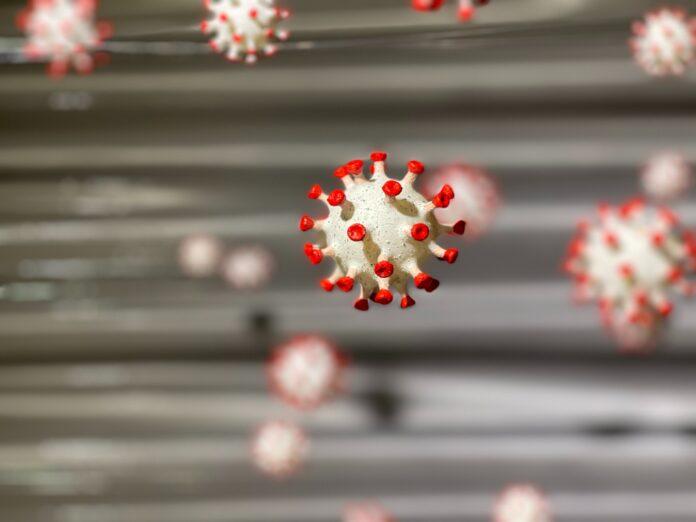NeoCoV, a koronavírus strain related to MERS-CoV found in bats (NeoCoV is not a new variant of SARS-CoV-2, the human koronavírus strain responsible for COVID-19 pandemic) has been reported to be the first case of a MERS-CoV variant using ACE2. NeoCoV has potential of human emergence with both high fatality and transmission rate.
A NeoCoV a MERS-CoV rokon törzse, amely denevért használ ACE 2 receptorok a denevérsejtekbe való bejutáshoz és fertőzéshez. Azonban a törzsek MERS DPP4 receptorokat használ a sejtbe jutáshoz. Fontos megjegyezni, hogy a NeoCoV nem új változata SARS koronavírus-2 amely 2019 novemberi megjelenése óta okozta a világméretű járványt.
This article shows that NeoCoV and its close relative PDF-2180-CoV is able to efficiently bind to ACE 2 receptors in bat, but bind less favourably to human ACE 2 receptors. Studies using cryo-electron microscopy revealed a distinct vírus-ACE 2 binding surface in case of binding of NeoCoV and PDF-2180-CoV to ACE 2 receptors. A molecular determinant implicates Asp 338 residue, that prevents NeoCoV from binding to human ACE 2 receptor. In addition, a T510F mutation in the receptor binding motif of NeoCoV causes it to efficiently bind human ACE 2 receptor.
Given the high fatality rate of 35% associated with MERS-CoV related vírusok derived from Beta CoV lineage, the NeoCoV could pose a potential threat to emergence of a high transmissible strain of NeoCoV and PDF-2180-CoV (upon gaining the T510F mutation due to antigenic drift) that can cause infection and mortality in humans, far worse than the current pandemic. Antigenic drift refers to random genetic mutációk amely változásokat okozott a fehérje szerkezetét, ezáltal megváltoztatja a fehérje azon képességét, hogy kötődjön egy adott receptorhoz. Ezenkívül a NeoCoV T510F mutációja által okozott fertőzést nem tudták kereszt-semlegesíteni a SARS-CoV-2 vagy MERS-CoV elleni antitestek.
The entire global community hopes that the mutation in NeoCoV and PDF-2180-CoV that causes it to efficiently bind to human ACE 2 receptor, remains a laboratory study to understand the virulence of these vírusok, and it doesn’t become a case of zoonotic transmission from bats to humans, creating another worldwide chaos.
***
Forrás:
Yan H., et al 2022. A MERS-CoV közeli rokonai denevérekben az ACE2-t használják funkcionális receptoraként. Preprint bioRxiv. Közzétéve: 25. január 2022. DOI: https://doi.org/10.1101/2022.01.24.477490






































